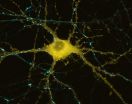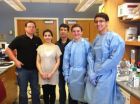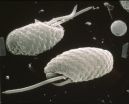(Press-News.org) A study by University of Iowa researchers confirms that pathological gambling runs in families and shows that first-degree relatives of pathological gamblers are eight times more likely to develop this problem in their lifetime than relatives of people without pathological gambling.
"Our work clearly shows that pathological gambling runs in families at a rate higher than for many other behavioral and psychiatric disorders," says Donald W. Black, MD, professor of psychiatry in the UI Carver College of Medicine. "I think clinicians and health care providers should be alerted to the fact that if they see a person with pathological gambling, that person is highly likely to have a close relative with similar or the same problem. That is a teaching moment and they should probably encourage the patient to let their relatives know that help is available."
Pathological gambling−gambling that is serious enough that it becomes a clinical issue−is a major public health problem that affects between 0.5 and 1.5 percent of American adults at some point during their lives.
The UI study, which was the largest of its kind in the world to date, recruited and assessed 95 pathological gamblers and 91 control subjects, matched for age, sex, and level of education, from Iowa, as well as 1,075 first-degree adult relatives of the study participants (first-degree relatives include parents, siblings, and children.) Based on interviews and proxy interview material, the research team determined a gambling diagnosis for every person in the study.
They found that 11 percent of the gambling relatives had pathological gambling themselves compared to 1 percent of the control relatives, which means that the odds are about eight times higher in gambling families for pathological gambling to run in those families compared to control families.
"People have always thought pathological gambling ran in families−anecdotal evidence certainly suggested it. But when you finally do a study like this, which is the largest of its kind, and come up with figures like this, it is quite striking," says Black, who was lead author of the study published in the March issue of the Journal of Clinical Psychiatry.
When the researchers repeated the analysis to focus on problem gambling−a larger group of people than those with the more narrowly defined pathological gambling−they found that 16 percent of relatives of the pathological gamblers were problem gamblers compared to 3 percent of relatives of controls.
The researchers also looked the relationships between pathological gambling and rates of other psychiatric and behavioral disorders among study participants and showed that relatives of pathological gamblers had higher rates of major depression, bipolar disorder, social anxiety disorder, substance use disorders, PTSD, and antisocial personality disorder.
Using statistical methods the team developed algorithms to determine which disorders are potentially biologically related to the gambling.
They found that antisocial personality, social anxiety disorder, and PTSD were more frequent in the relatives of pathological gamblers independent of whether the relative also had pathological gambling.
"This suggests that pathological gambling may share an underlying genetic predisposition with those disorders," Black says.
This finding appears to confirm previous research and clinical observation suggesting that antisocial personality disorder could be biologically related to pathological gambling. However, Black was surprised by the connection between pathological gambling and social anxiety and PTSD connection.
"No one has ever published that and it's hard to know what to make of it yet," he says.
The study also confirmed that mood disorders like major depression and bipolar disorder, as well as substance abuse, are common in pathological gamblers, but the analysis suggests that this probably is not due to a shared underlying biologic predisposition.
""I think our findings should give impetus to neuroscientists who conduct molecular genetic studies to really pursue this," Black says. "Maybe this situation provides a better chance of finding genes that are linked to the gambling disorder, and maybe that would pave the way for improving our understanding of the genetic transmission in general for psychiatric disorders, particularly in the realm of addiction."
INFORMATION:
In addition to Black, the UI research team included William Coryell, MD; Raymond Crowe, MD; Brett McCormick; Martha Shaw; and Jeff Allen, PhD. The study was funded by a grant from the National Institute on Drug Abuse (DA021361).
Pathological gambling runs in families
Problem may be biologically related to PTSD, social anxiety disorder, and antisocial personality
2014-06-16
ELSE PRESS RELEASES FROM THIS DATE:
Low dose of targeted drug might improve cancer-killing virus therapy
2014-06-16
COLUMBUS, Ohio – Giving low doses of a particular targeted agent with a cancer-killing virus might improve the effectiveness of the virus as a treatment for cancer, according to a study led by researchers at The Ohio State University Comprehensive Cancer Center – Arthur G. James Cancer Hospital and Richard J. Solove Research Institute (OSUCCC – James).
Viruses that are designed to kill cancer cells – oncolytic viruses – have shown promise in clinical trials for the treatment of brain cancer and other solid tumors. This cell and animal study suggests that combining low ...
How our brains store recent memories, cell by single cell
2014-06-16
Confirming what neurocomputational theorists have long suspected, researchers at the Dignity Health Barrow Neurological Institute in Phoenix, Ariz. and University of California, San Diego School of Medicine report that the human brain locks down episodic memories in the hippocampus, committing each recollection to a distinct, distributed fraction of individual cells.
The findings, published in the June 16 Early Edition of PNAS, further illuminate the neural basis of human memory and may, ultimately, shed light on new treatments for diseases and conditions that adversely ...
Omega (ω)-3 inhibits blood vessel growth in a model of age-related macular degeneration in vivo
2014-06-16
Boston (June 16, 2014) – Age-related macular degeneration (AMD), which is characterized by choroidal neovascularization (CNV), or blood vessel growth, is the primary cause of blindness in elderly individuals of industrialized countries. The prevalence of the disease is projected to increase 50% by the year 2020. There is an urgent need for new pharmacological interventions for the treatment and prevention of AMD.
Researchers from Massachusetts Eye and Ear/Schepens Eye Research Institute, Harvard Medical School and other institutions have demonstrated for the first time ...
Caterpillars that eat multiple plant species are more susceptible to hungry birds
2014-06-16
Irvine, Calif. — For caterpillars, having a well-rounded diet can be fraught with peril.
UC Irvine and Wesleyan University biologists have learned that caterpillars that feed on one or two plant species are better able to hide from predatory birds than caterpillars that consume a wide variety of plants.
This is probably because the color patterns and hiding behaviors of the caterpillar "specialists" have evolved to allow them to blend into the background flora more effectively than caterpillars that eat many different plant species. Moving among these diverse plant ...
Hunt for extraterrestrial life gets massive methane boost
2014-06-16
A powerful new model to detect life on planets outside of our solar system, more accurately than ever before, has been developed by UCL (University College London) researchers.
The new model focuses on methane, the simplest organic molecule, widely acknowledged to be a sign of potential life.
Researchers from UCL and the University of New South Wales have developed a new spectrum for 'hot' methane which can be used to detect the molecule at temperatures above that of Earth, up to 1,500K/1220°C – something which was not possible before.
To find out what remote planets ...
Physician anesthesiologists identify 5 tests and procedures to avoid
2014-06-16
Proving that less really is more, five specific tests or procedures commonly performed in anesthesiology that may not be necessary and, in some cases should be avoided, will be published online June 16 in JAMA Internal Medicine. The "Top-five" list was created by the American Society of Anesthesiologists® (ASA®) for inclusion in the ABIM Foundation's Choosing Wisely® campaign.
"The Top-five list of activities to question in anesthesiology was developed in an effort to reduce unnecessary, costly procedures and improve patient care," said Onyi Onuoha, M.D., M.P.H., lead ...
Your genes affect your betting behavior
2014-06-16
Investors and gamblers take note: your betting decisions and strategy are determined, in part, by your genes.
University of California, Berkeley, and University of Illinois at Urbana-Champaign (UIUC) researchers have shown that betting decisions in a simple competitive game are influenced by the specific variants of dopamine-regulating genes in a person's brain.
Dopamine is a neurotransmitter – a chemical released by brain cells to signal other brain cells – that is a key part of the brain's reward and pleasure-seeking system. Dopamine deficiency leads to Parkinson's ...
When genes play games
2014-06-16
Berkeley — What do you get when you mix theorists in computer science with evolutionary biologists? You get an algorithm to explain sex.
It turns out that 155 years after Charles Darwin first published "On the Origin of Species," vexing questions remain about key aspects of evolution, such as how sexual recombination and natural selection produced the teeming diversity of life that exists today.
The answer could lie in the game that genes play during sexual recombination, and computer theorists at the University of California, Berkeley, have identified an algorithm ...
Quantum biology: Algae evolved to switch quantum coherence on and off
2014-06-16
A UNSW Australia-led team of researchers has discovered how algae that survive in very low levels of light are able to switch on and off a weird quantum phenomenon that occurs during photosynthesis.
The function in the algae of this quantum effect, known as coherence, remains a mystery, but it is thought it could help them harvest energy from the sun much more efficiently.
Working out its role in a living organism could lead to technological advances, such as better organic solar cells and quantum-based electronic devices.
The research is published in the journal Proceedings ...
Quantum theory reveals puzzling pattern in how people respond to some surveys
2014-06-16
COLUMBUS, Ohio – Researchers used quantum theory – usually invoked to describe the actions of subatomic particles – to identify an unexpected and strange pattern in how people respond to survey questions.
By conventional standards, the results are surprising: The scientists found the exact same pattern in 70 nationally representative surveys from Gallup and the Pew Research center taken from 2001 to 2011, as well as in two laboratory experiments. Most of the national surveys included more than 1,000 respondents in the United States.
"Human behavior is very sensitive ...
LAST 30 PRESS RELEASES:
Novel camel antimicrobial peptides show promise against drug-resistant bacteria
Scientists discover why we know when to stop scratching an itch
A hidden reason inner ear cells die – and what it means for preventing hearing loss
Researchers discover how tuberculosis bacteria use a “stealth” mechanism to evade the immune system
New microscopy technique lets scientists see cells in unprecedented detail and color
Sometimes less is more: Scientists rethink how to pack medicine into tiny delivery capsules
Scientists build low-cost microscope to study living cells in zero gravity
The Biophysical Journal names Denis V. Titov the 2025 Paper of the Year-Early Career Investigator awardee
Scientists show how your body senses cold—and why menthol feels cool
Scientists deliver new molecule for getting DNA into cells
Study reveals insights about brain regions linked to OCD, informing potential treatments
Does ocean saltiness influence El Niño?
2026 Young Investigators: ONR celebrates new talent tackling warfighter challenges
Genetics help explain who gets the ‘telltale tingle’ from music, art and literature
Many Americans misunderstand medical aid in dying laws
Researchers publish landmark infectious disease study in ‘Science’
New NSF award supports innovative role-playing game approach to strengthening research security in academia
Kumar named to ACMA Emerging Leaders Program for 2026
AI language models could transform aquatic environmental risk assessment
New isotope tools reveal hidden pathways reshaping the global nitrogen cycle
Study reveals how antibiotic structure controls removal from water using biochar
Why chronic pain lasts longer in women: Immune cells offer clues
Toxic exposure creates epigenetic disease risk over 20 generations
More time spent on social media linked to steroid use intentions among boys and men
New study suggests a “kick it while it’s down” approach to cancer treatment could improve cure rates
Milken Institute, Ann Theodore Foundation launch new grant to support clinical trial for potential sarcoidosis treatment
New strategies boost effectiveness of CAR-NK therapy against cancer
Study: Adolescent cannabis use linked to doubling risk of psychotic and bipolar disorders
Invisible harms: drug-related deaths spike after hurricanes and tropical storms
Adolescent cannabis use and risk of psychotic, bipolar, depressive, and anxiety disorders
[Press-News.org] Pathological gambling runs in familiesProblem may be biologically related to PTSD, social anxiety disorder, and antisocial personality





